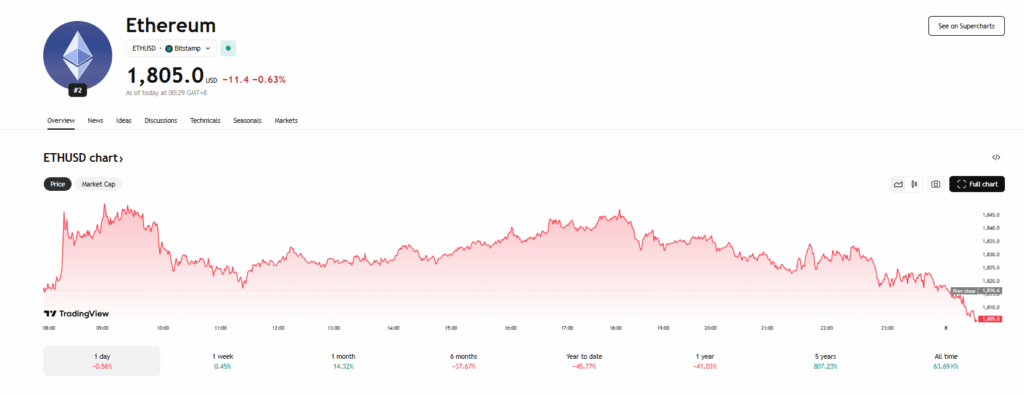- Ethereum’s Pectra upgrade introduces smart accounts, bigger staking limits, and cheaper transactions.
- New EIP-7702 lets wallets pay gas fees in tokens other than ETH, but some fear it could open the door to scams.
- EIP-7251 raises validator staking limits from 32 to 2,048 ETH, streamlining operations for big stakers.
Ethereum’s taking another big step forward today with the Pectra upgrade, which just dropped on mainnet at the start of epoch 364032 — around 10 a.m. UTC. It’s the most significant overhaul since the Merge in 2022, and it’s bringing three major Ethereum Improvement Proposals (EIPs) to the network.
Smart accounts, bigger staking limits, and cheaper transactions
EIP-7702 — This one lets regular wallets act like smart contracts, meaning they can pay gas fees in other tokens besides ETH. Think of it as a step toward a Web2-like user experience, where people won’t have to approve every single transaction. Some devs say it could pave the way for gasless transactions, but others warn it might make it easier for scammers to trick people into signing bad transactions.
EIP-7251 — This change hikes the staking limit for validators from 32 ETH to 2,048 ETH, which should streamline staking operations for bigger players. Before this, large stakers had to split their ETH across multiple nodes — now, they can pile it all onto one. Less equipment, less hassle.
EIP-7691 — This one bumps up the number of data blobs per block, making it cheaper for layer-2s to process transactions. In plain English: better scalability and potentially lower fees for users.
Not everyone’s thrilled
While some devs are hyped about the account abstraction features, others are cautious. “It’s not a magic bullet,” said 0xAw, lead dev at Alien.Base. “Yeah, it could make Ethereum feel more like a Web2 app, but it also opens up new risks. One bad signature, and you’re toast.”
Mike Tiutin from PureFi echoed that sentiment, saying scammers could take advantage of the new signing methods to drain wallets even faster. Meanwhile, Ambire’s Ivo Georgiev downplayed the risks, saying developers have gotten pretty good at securing contracts by now.
What about staking?
Staking services are already eyeing the bigger limit. Artemiy Parshakov from P2P.org says it’s a game changer for institutional clients. “Instead of dealing with a hundred separate nodes, they can consolidate into one — much less room for error,” he said.

There’s also EIP-6110, which changes how new validators are handled on the network. Now, data about new validator deposits will be included directly in execution-layer blocks instead of waiting for consensus votes. The hope? Fewer bugs, fewer delays, smoother staking.
The upgrade didn’t come without its headaches. Bugs on the testnets delayed Pectra twice, but devs say they’re ready this time. Let’s see how it shakes out.

















